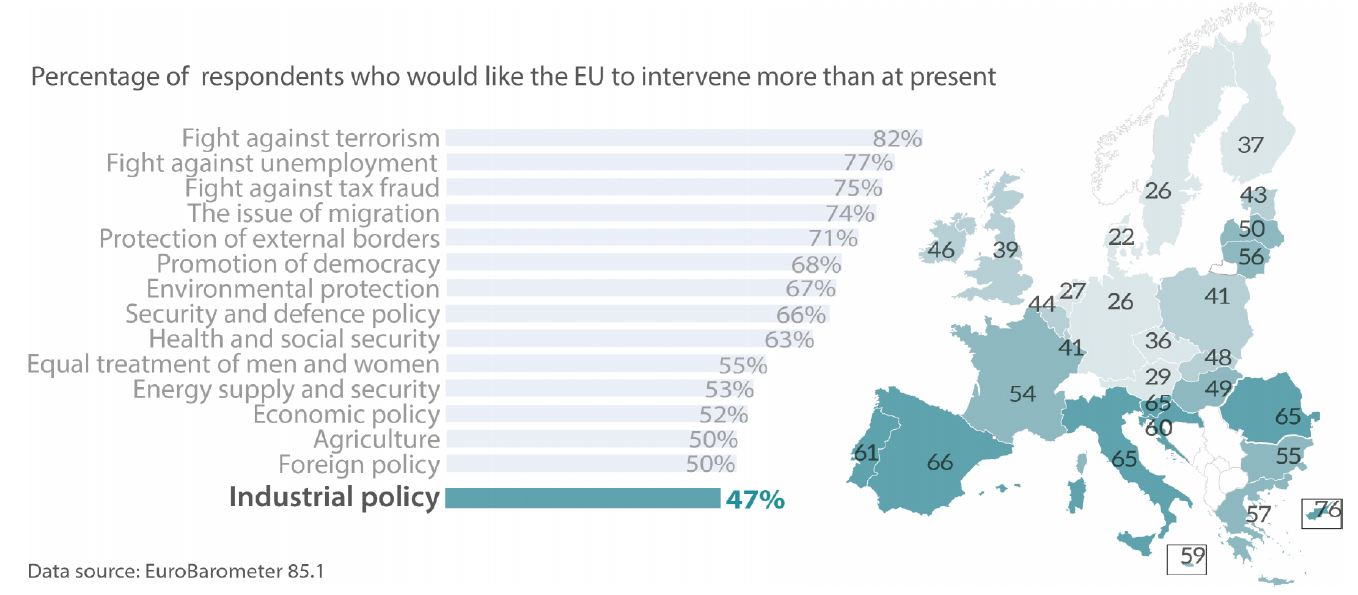Written by Clare Ferguson,
The European Parliament, the only directly elected EU institution, recently commissioned a Eurobarometer survey to gauge citizens’ attitudes to EU action in a range of policy fields, including industry, energy supply and energy security. Although industrial policy appears to be a low priority for citizens, ensuring a secure supply of energy is of more importance. We look at the gaps between citizens’ expectations and the scope for further EU intervention in these fields.
Industrial policy

European citizens continue to perceive industrial policy as a mainly domestic matter. Of all the policy areas mentioned in the recent Eurobarometer survey, citizens feel least strongly about their responses to questions on industrial policy. However, EU policy-makers are keen to employ industrial policies to boost economic growth, which has benefits that are rather more obvious for citizens. The Commission has placed industrial policy as a key element of the Europe 2020 strategy, setting a target to increase industry share of GDP to 20% by 2020. Reindustrialisation in Europe is already the aim of wide-ranging policies and programmes amounting to almost €200 billion in funding, but more funding could be available.
Energy supply and energy security

The EU has had the power to decide energy policy since 2009, and aims to ensure a secure, sustainable and affordable energy supply for EU citizens. However, more than half of EU citizens would like to see the EU play a bigger role in energy security and supply. The Energy Union strategy provides a framework for further integration of European energy markets, but a more integrated single market for energy could result in annual efficiency gains worth €250 billion.
Read the complete briefing on:
- Public expectations and EU policies – Industrial policy
- Public expectations and EU policies – Energy supply and energy security
See other policy areas covered with this Eurobarometer.








[…] via Public opinion and EU action on industrial policy, energy supply and security: exploring the expecta… […]
[…] Source Article from https://epthinktank.eu/2016/08/12/public-opinion-and-eu-action-on-industrial-policy-energy-supply-an… […]